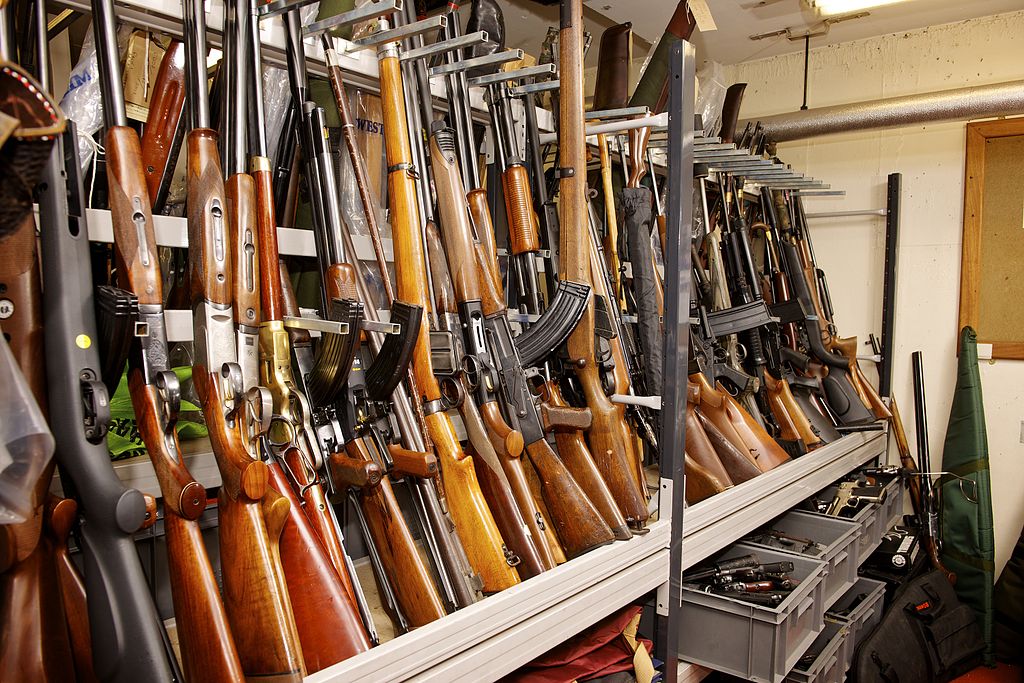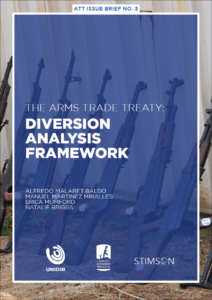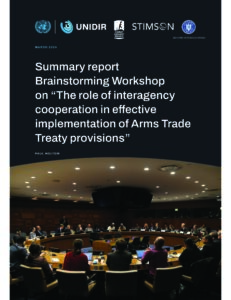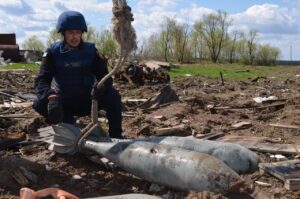Strengthening shared understanding on the impact of the Arms Trade Treaty in addressing risks of diversion in arms transfers is a joint research endeavor by UNIDIR, Conflict Armament Research, and the Stimson Center. The objective of the research is to enhance knowledge and to facilitate dialogue among States to strengthen shared understanding on the impact of the Arms Trade Treaty in addressing risks of diversion in arms transfers, and to identify options and avenues for more effective policies and practices under the Treaty moving forward. The research aims to reflect on the challenges and to generate ideas to strengthen counter-diversion measures within the Treaty’s framework. Through a series of issue briefs, the research examines key concepts and thematic issues in preventing and mitigating the risk of diversion. The research will culminate in an assessment of progress made by States parties and their impact in addressing risks and challenges related to diversion in arms transfers. Findings from this research will contribute to tackling the challenges associated with poorly regulated arms transfers at the national, regional and multilateral levels, and to informing the development of good policies and practices to counter diversion under the Treaty’s framework and the relevant multilateral instruments.
This report was originally published by UNIDIR.





